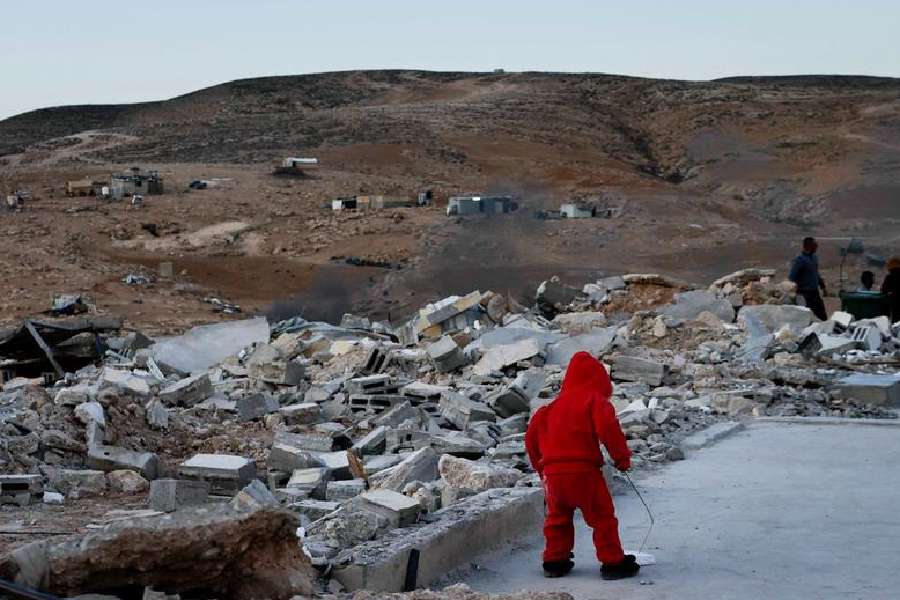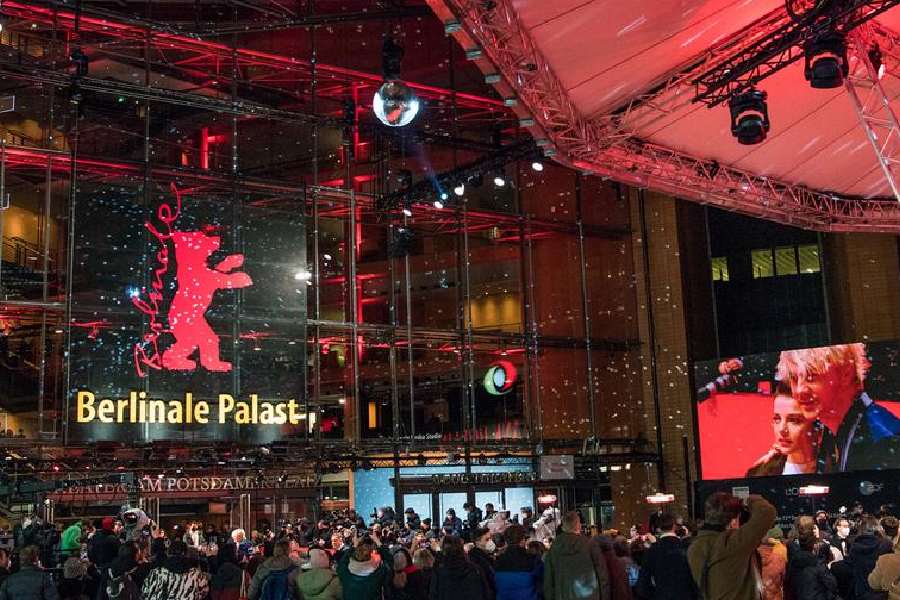The Berlinale is renowned as a film festival that tackles political issues and advocates for humanitarian values. Debates and protests surrounding the Israel-Hamas war were inevitably expected to be part of this year's event.
While a few "Free Gaza" signs were spotted on the red carpet, the opening gala on February 15 was held without disruption.
Then on Sunday, rather unexpectedly, some 50 pro-Palestinian supporters staged a protest at the European Film Market, according to reports by Deadline.com. The film market has close links with the festival, but unlike the Berlin International Film Festival's many red carpet premieres, the business platform is restricted to film industry professionals and is therefore not in the public spotlight.
Criticism also came from within the festival's organization itself.
An open letter, currently signed by 60 Berlinale contractors — including curators of various sections of the festival — calls on the festival to sharpen its official statement on the current humanitarian crisis in Gaza.
When they presented their program, the Berlinale's management duo, Mariette Rissenbeek and Carlo Chatrian, emphasized that their sympathy goes out to all victims of the crises in the Middle East, and that they want "everyone's suffering to be recognized and for our program to open up different perspectives on the complexity of the world."
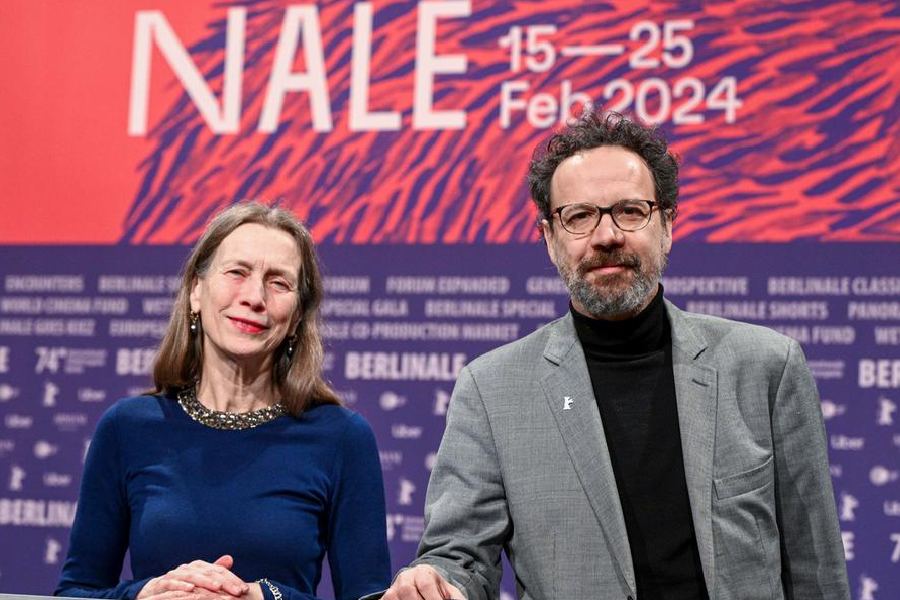
Mariette Rissenbeek and Carlo Chatrian also expressed their concern about growing antisemitism, anti-Muslim hatred and hate speech Deutsche Welle
For the signatories, however, this is not enough: "We join a global solidarity movement to demand an immediate cease-fire and call for the release of all hostages," the letter states. "As the world bears witness to an inconceivable loss of civilian life in Gaza — including those of journalists, artists, and film workers — as well as the destruction of unique cultural heritage, we need stronger institutional stances."
Another open letter came from participants of the Forum Expanded section, one of the festival's independently curated programs. Seen as a more experimental section of the Berlinale, Forum Expanded reflects on film as a medium through a broad range of artistic disciplines.
The more than 100 signatories of this letter expressed their support for four colleagues who withdrew their works from the selection ahead of the event. These four artists cited on Instagram their solidarity with the "Strike Germany" movement, which calls for a boycott of state-sponsored cultural institutions in Germany, in protest at the country's reluctance to call for a cease-fire.
Due to its Nazi past, Germany sees it as its historic responsibility to support Israel.
Meanwhile, Israeli filmmakers present at the festival do not shy away from criticizing their country's government.
Renowned Israeli director Amos Gitai premiered his new feature at the Berlinale, "Shikun." The politically-minded film builds on Eugene Ionesco's 1959 play "Rhinoceros," an absurdist fable commenting on the sudden rise of fascism ahead of World War II.
Gitai developed the film project amid the huge protest movement against Israeli Prime Minister Benjamin Netanyahu's contentious legal overhaul, which opponents see as an attack on the country's democracy.
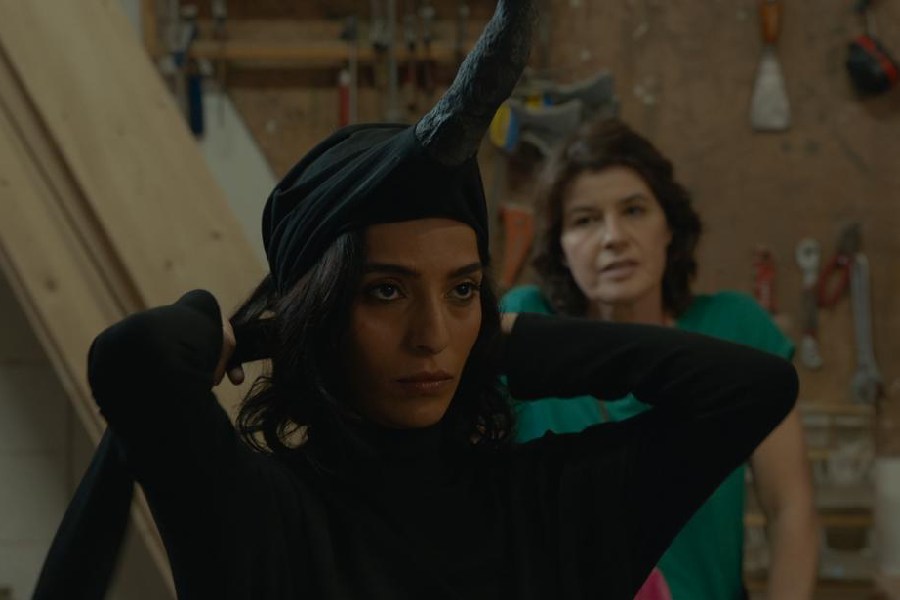
A scene from 'Shikun' with Bahira Ablassi (in black) and Irene Jacob Deutsche Welle
"Shikun" (which means "social housing" in Hebrew) brings together a series of vignettes all set in a single desolate housing complex. Scenes involving Israelis and Palestinians, as well as Ukrainians and other newcomers, are revealed in different rooms of the building.
Gitai challenges his viewers with an unconventional narrative structure, explaining in a roundtable interview that he is bored by the conformity of the kind of storytelling that dominates streaming platforms.
The film also integrates quotes from some of the world's great thinkers, from Umberto Eco to Robert Musil, as well as excerpts of a piece by Israeli journalist Amira Hass, titled "'I Was Just Following Orders': What Will You Tell Your Children?", which she wrote to her fellow Israelis to raise their awareness for the Gazans' plight.
(Incidentally, Hass, a daughter of Holocaust survivors, was among the early critics of Germany's stance towards Israel after the October 7 attacks, publishing less than 10 days after the shock an op-ed in Israeli newspaper Haaretz titled "Germany, You Have Long Since Betrayed Your Responsibility").
Gitai's film concludes with a quote from the poem "Think of Others," words of compassion written by Palestinian poet Mahmoud Darwish (1941-2008).
While the film will feel cryptic to audiences who are not familiar with all these references, Gitai uses very clear terms to express his views on the current Israeli government in a roundtable interview with the press at the Berlinale.
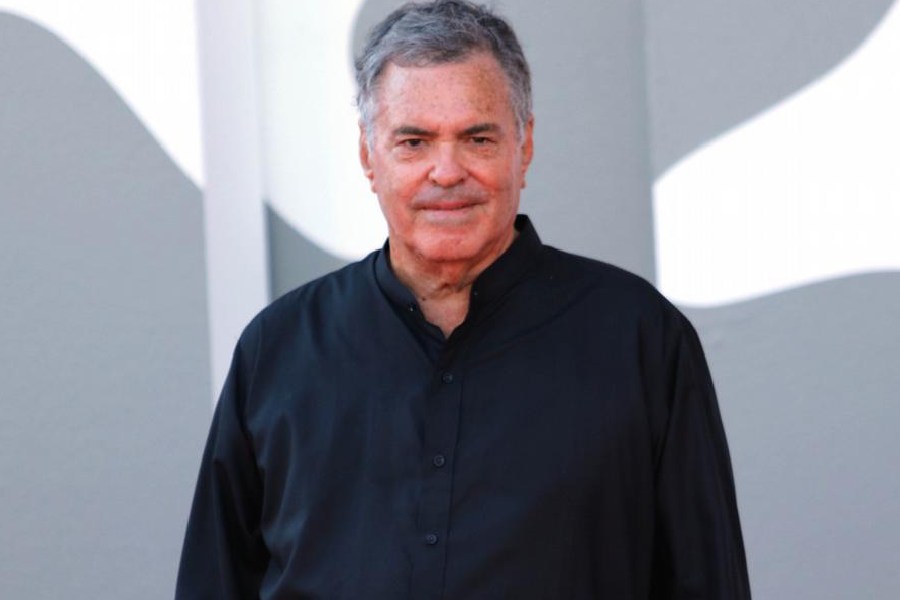
Israeli filmmaker Amos Gitai Deutsche Welle
After emphasizing that Hamas' brutal terrorist attacks can in no way be justified, the critic of extremism says that his home country is "hostage to Netanyahu's most right-wing coalition."
Gitai sees Netanyahu as "a manipulator on the highest level," and feels that the prime minister "may destroy Israel," he told DW.
"Since he doesn't have any ethical constraints, he collected the worst components of Israeli society: the ultra-nationalist, racist, extremist provocateurs, the ultra-Orthodox reactionaries who are against women, against LGBT. So he is an important component of this tragedy."
Another one of the films commenting on the Middle East conflict at the Berlin festival is "No Other Land," directed by a Palestinian-Israeli collective.
The documentary chronicles how Basel Adra, a young Palestinian activist and one of the co-directors of the film, has been fighting for years against the eradication of Masafer Yatta, his village in the Israeli West Bank, where houses are being demolished and residents driven out. A military training ground is officially set to be built there.
The film shows how he was then joined in his efforts by an Israeli journalist, Yuval Abraham, who became an activist after learning the Arabic language and witnessing the injustice of the Israeli occupation.
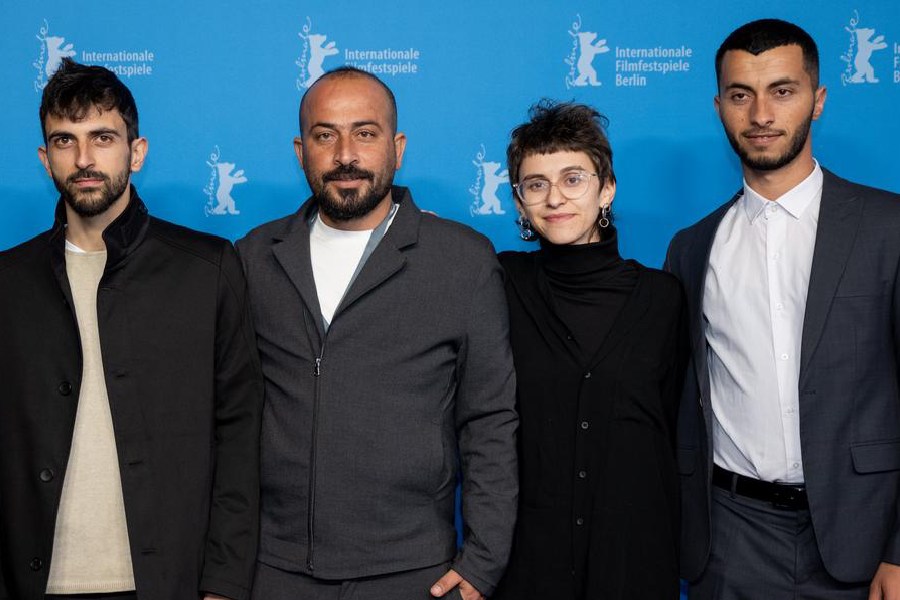
The directors of 'No Other Land' (from left to right): Yuval Abraham, Hamdan Ballal, Rachel Szor and Basel Adra Deutsche Welle
For the activists, oppression inevitably leads to violent reactions, which is why they feel the West should put more pressure on the Israeli government to end the occupation.
"I know Germans have a lot of guilt for what happened in the Second World War," Abraham told DW, adding that many of his relatives were killed during the Holocaust. "Don't use this guilt now and weaponize it and refuse to call for a cease-fire; use it to help us reach a political solution! Use it to pressure the state of Israel to end the occupation," says the Israeli documentary filmmaker. "That would be for me a much more moral stance for the government to take."

